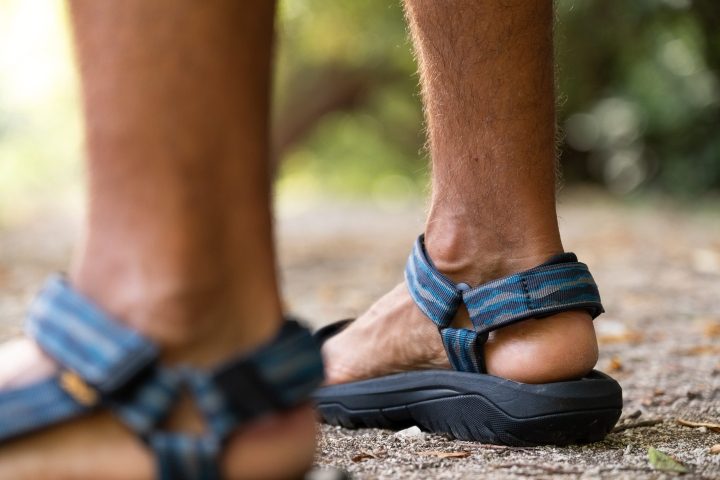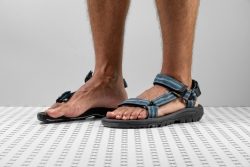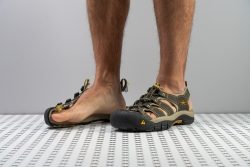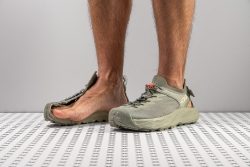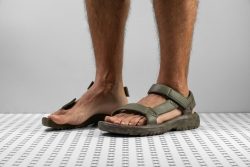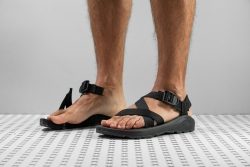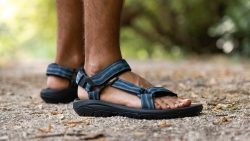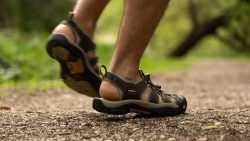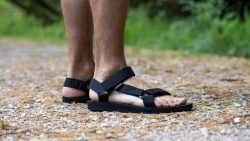5 Best Water Hiking Sandals in 2024
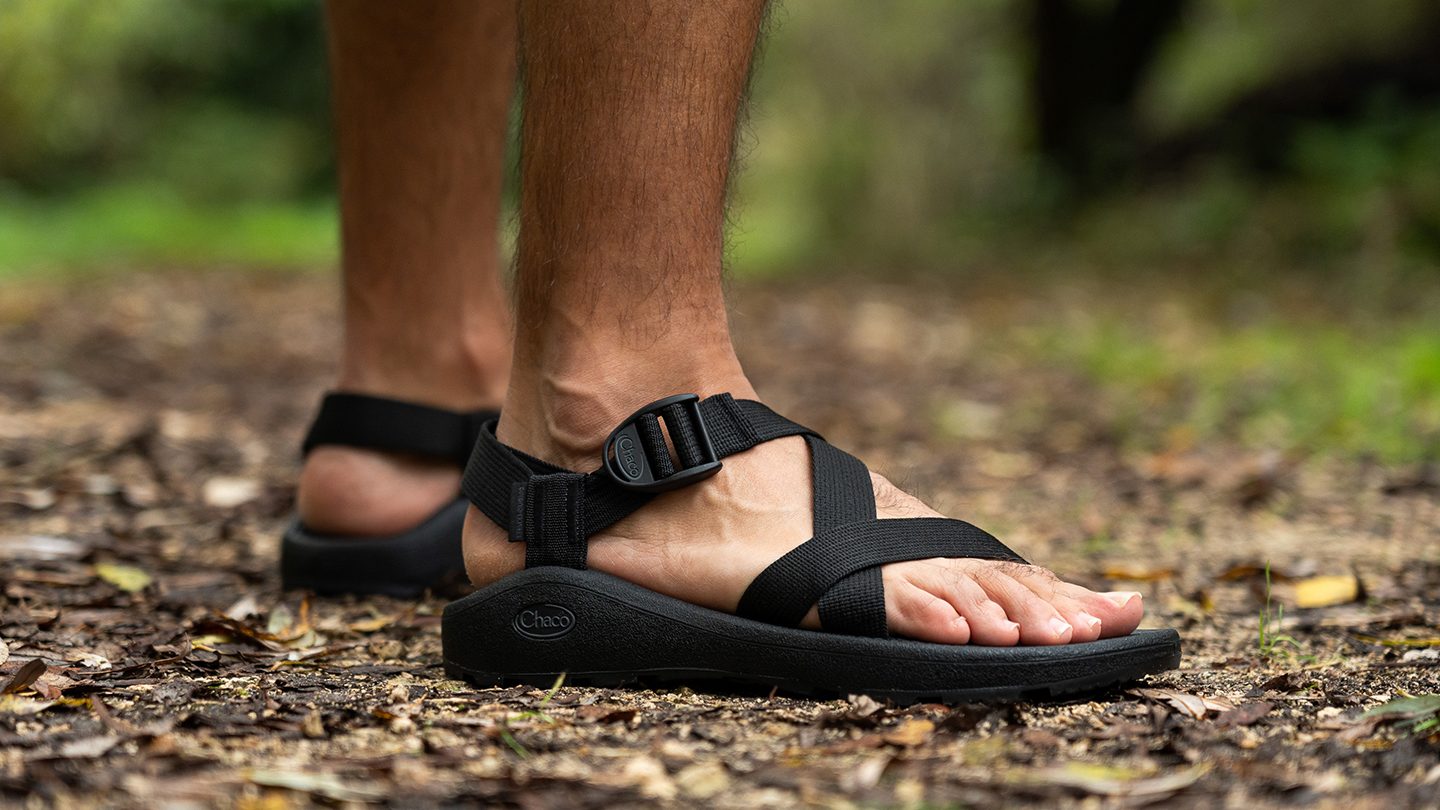
There are times when taking a plunge is far more rewarding than skipping the drench on our daily hikes. In such cases, you are far better off sporting a pair of water hiking sandals.
Having tested these incredible water-ready hikers, we are proud to share with you our top picks. We have submerged and flooded these sandals in water to truly know how water-safe they really are. We also tested their durability and flexibility in the lab, so that you know what to expect when it comes to their shelf life and performance. So, whether you need a well-rounded sandal or a barefoot kick to make your day around streams, you are in the right place.
How we test hiking sandals
Unbiased reviews are getting harder and harder to come by these days. This is not the case for us here at RunRepeat, where our reviews are objective and professionally written. Here is our approach to reviews:
- We buy water hiking sandals using our own money. This is our number one requirement to help us intercept any kind of unfairness when it comes to critiquing footwear.
- We test every pair for days, paying close attention to each sandal’s performance in and around water, as well as on regular trails.
- We get down to real business inside our lab. We get pieces of evidence for the things we encounter in the actual wearing of the shoes by bringing out our weapons (aka tools and equipment)! We measure the different parameters of the shoes. One of which is the weight of the shoes which we obtain using our digital weighing scale. That is not all! We also bust the shoes open and check all that we can examine.
Best water hiking sandals overall
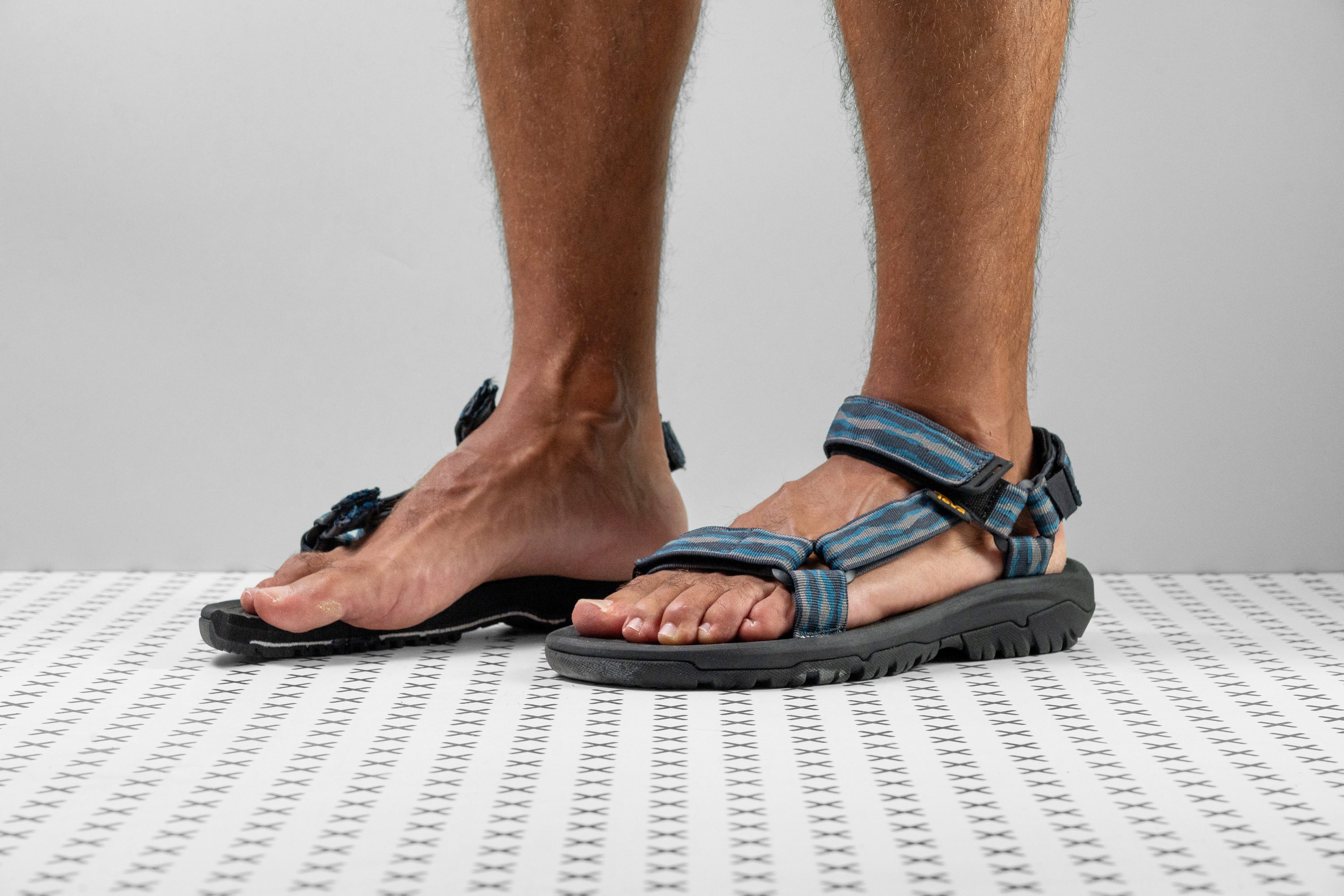





























What makes it the best?
We loved wearing this sandal, and it also proved itself in our rigorous lab tests. With its supportive footbed, quick-drying webbing, and plush cushioning, the Teva Hurricane XLT2 is, without a doubt, the best overall water hiking sandal.
Flat-footed hikers and overpronators, rejoice! Teva’s beautifully designed contoured footbed with raised arch supports our feet perfectly on hikes, as well as keeping our heel securely lodged into the sandal. The 120 mm platform is 2.1 mm wider than average at the forefoot and 1.9 mm wider at the heel. These two features work together to make a wonderfully supportive hiking sandal that can handle rough riverside paths and maintained forest trails alike.
The quick-drying webbing ensured we didn’t develop blisters after paddling in a stream. We love that all 3 straps can be adjusted, meaning the sandal can adapt to any shaped foot.
We almost forgot we were wearing sandals while hiking in the Teva Hurricane XLT2! With ample cushioning keeping our feet well-protected on rough ground, the heel-to-toe drop makes us feel like we’re wearing hiking shoes. In the lab, we measured an astounding 11.9 mm drop, while the average for sandals is 8.3 mm! Our durometer measurements showed the midsole is much softer than average, at 21.6 HA compared to 28.4 HA. This plushness is a real gift, and we almost didn’t want to take them off at the end of the day!
Weighing in at 10.7 oz (303g), the Teva Hurricane XLT2 is not the lightest sandal on the market. In fact, it weighs 0.5 oz (15g) heavier than average. For hikers looking for a lightweight sandal to complement their collection, we recommend looking at other options.
Pros
- Highly versatile
- Well-cushioned
- Supportive footbed
- Durable for the price
- Grippy outsole
- Customizable fit
- Lightweight
- Quick-drying
- Affordable
Cons
- No toe protection
- Runs a little large
Water hiking sandals with the best protection
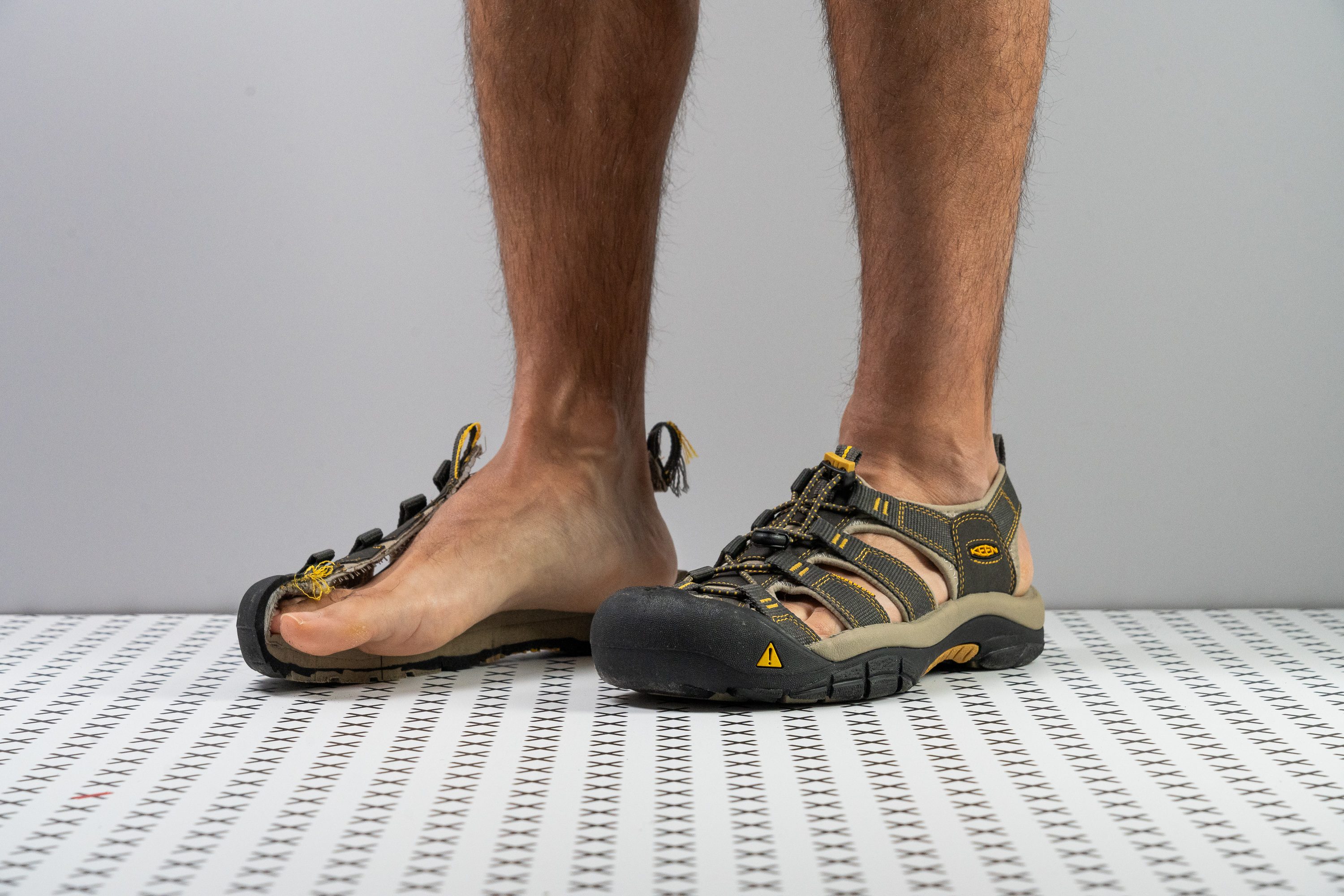




















What makes it the best?
Hikers looking for a sandal that performs well on the trail as well as boulder hopping around mountain streams can look this way. In our lab and out on hikes, we voted the KEEN Newport H2 the best water hiking sandals with the best protection because of its protective, comfortable midsole, unerring stability, and hydrophobic properties.
There’s nothing minimalist about this sandal when it comes to protection. Our feet felt coddled by the cushioning from mile 1, and when we measured the stack height at the heel, our caliper registered 29.4 mm. With 6.7 mm extra material underfoot than the average for sandals, the Newport H2 is actually snapping at the heels of hiking shoes in terms of protective cushioning! With such a thick midsole that is 35% softer than average, and the closed toe box to eliminate catching our toes on roots and rocks, it’s no wonder our feet felt so pampered and protected!
Our feet felt superbly supported while hiking on rough forest trails or rock hopping. In the lab, we measured the width of the sandal and were stunned at the results. The forefoot measures 121.1 mm and the heel 88 mm. Given that the average width of hiking sandals is 116.9 mm and 85.2 mm, the Newport H2 is significantly wider, which translates to stability on the trail.
The KEEN Newport H2 is the second iteration of this shoe, swapping out the original leather strapping for polyester webbing. We found this performed better when wet, as it dried out much quicker.
With the added comfort and protective toe box, this is not the lightest sandal on the market. It tipped the scales at 13.4 oz (381g) in our lab - 2.3 oz (77g) heavier than average for sandals. Therefore, we don’t recommend it to hikers looking for a lightweight pair of sandals.
Pros
- Versatile for various hikes
- Exceptionally plush
- Incredible grip level
- Stable and supportive
- Day-one comfort
- Easy and fast to lace up
- Quick-drying
- Stink-proof
Cons
- Heavier than average
- Traps debris
Water hiking sandals with the best cushioning
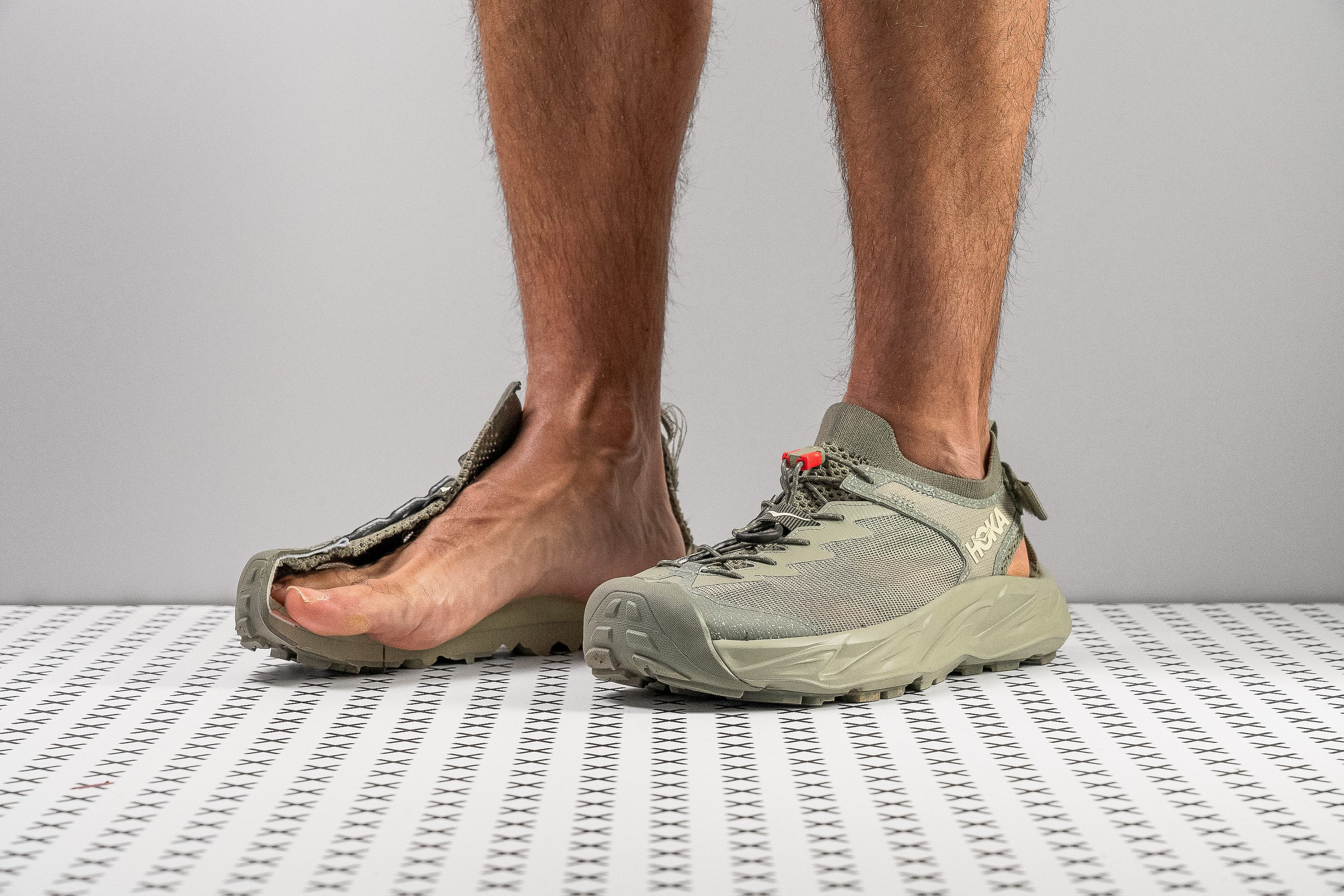













































What makes it the best?
After conducting actual hikes and intensive lab analysis, it’s hard to find a sandal that matches Hoka Hopara 2’s comfort and protection. With its cushy platform, efficient drainage, and robust overall build, it’s easily our top pick for the best-cushioned water hiking sandal.
Without being excessively tall, Hopara 2 offers a rare combination of plushness, protection, and bounce that makes us go further. Cutting the shoe in half, we discovered a dual-density foam that brought us all-day comfort in our hikes. Our durometer shows the top is a soft 24.0 HA while the bottom is a firm 33.5 HA that mutes out any trail debris we step on.
Even below, the robust 82.9 HC outsole can take a beating. It resisted our Dremel impressively and showed a minimal 0.7 mm dent compared to the 2.1 mm average. Its 3-mm lugs also kept us surefooted throughout any terrain be it loose ground or wet rocks.
As we passed through deep waters, the sturdy Cordura mesh panels and toe cap ensured our feet were protected from toe stubs and small pebbles. Drying out was also a breeze as the water escaped quickly while air flowed in freely. However, it’s best to leave this pair at home during beach trips as it traps sand inside.
Pros
- Unmatched toe protection
- Highly durable construction
- Light for a closed-toe sandal
- Excellent water drainage
- Comfortable cushioning
- Feels stable and grounded
- Fantastic grip on slippery surfaces
- Plenty of toe room
- Sustainable materials
Cons
- Traps sand easily
- Not for narrow feet
- Color discrepancy
Best floatable water hiking sandals
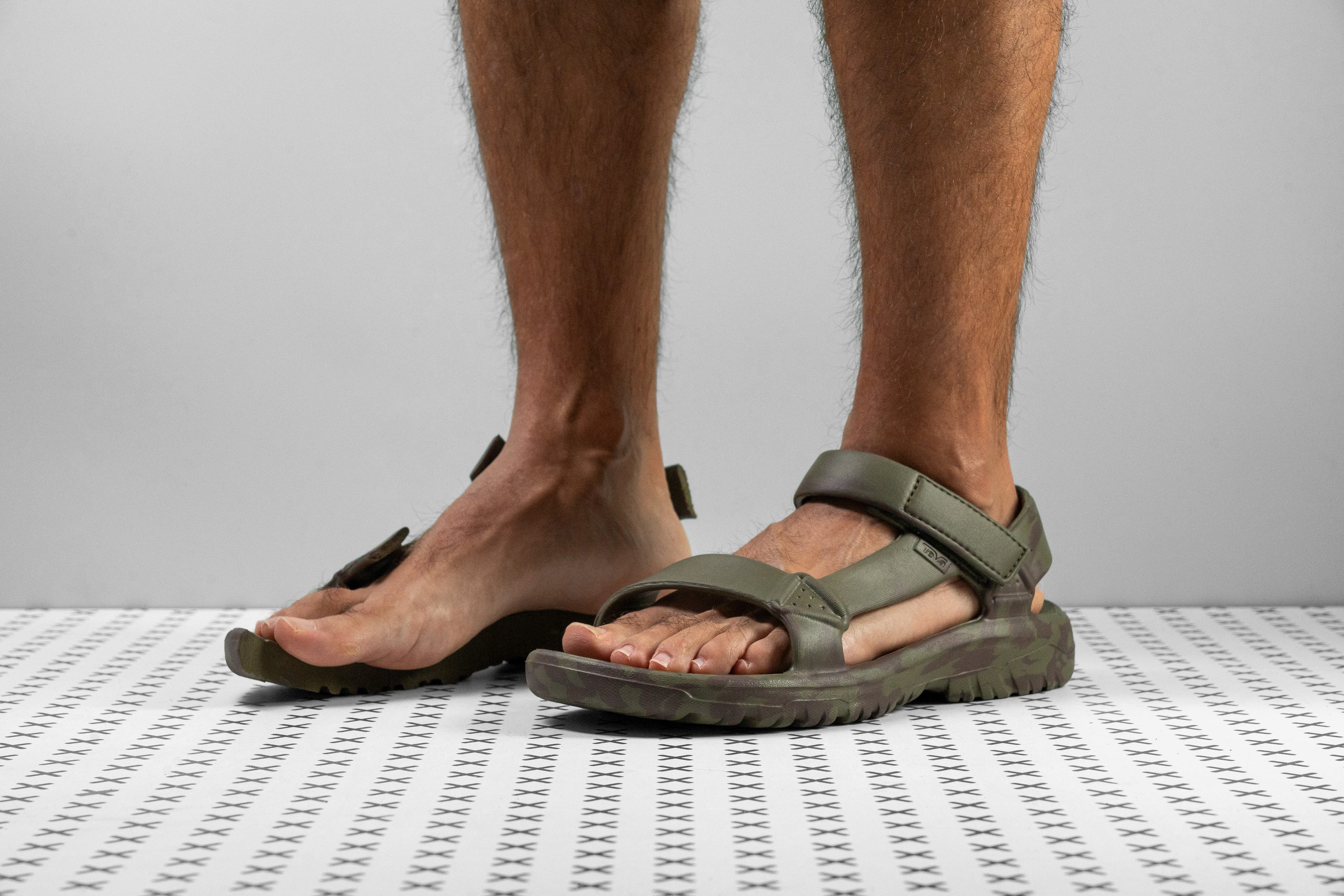






























What makes it the best?
Based on our wear tests and lab results, Teva Hurricane Drift is the best floatable water hiking sandal. Made entirely of foam, this sink-proof sandal feels light and comfortable on foot, while its excellent traction and stable ride give us the confidence to venture into river banks and waterfalls.
With its barely-there feel, we can paddle and swim freely. Drift is among the lightest hiking sandals on the market, tipping the scale at a mere 7.2 oz (240g). Because of its material, it floats right up and the straps don’t stay wet for long.
Its platform strikes a fine balance between comfort, ground feel, and protection. Its 28.9 mm heel is 4.3 mm thicker than average for impact protection, while its forefoot is around the average for enhanced control. We measured its cushion at 23.5 HA, confirming it’s buttery smooth but still has some firmness to shield our feet from sharp rocks.
We can control our balance on rocky underwater surfaces and near-water terrains because of Drift’s grippy bite and spacious platform. Our caliper shows a wide 94.8 mm heel and a generous 105.6 mm toebox for sure-footed strides, effectively avoiding our unwanted foot movements and ankle rolls.
Those with low-volume feet will find Drift’s fit unsecured because we couldn’t adjust the forefoot strap. The only way to tighten it is through the ankle strap.
Pros
- Well-cushioned sole
- Floats on water
- Very affordable
- Among the lightest sandals
- Wide and stable platform
- Grippy outsole
- Doesn't stay wet
- Vivid color options
Cons
- Forefoot strap is not adjustable
- Too loose for narrow feet
- Not for serious hikes
Water hiking sandals with the best comfort
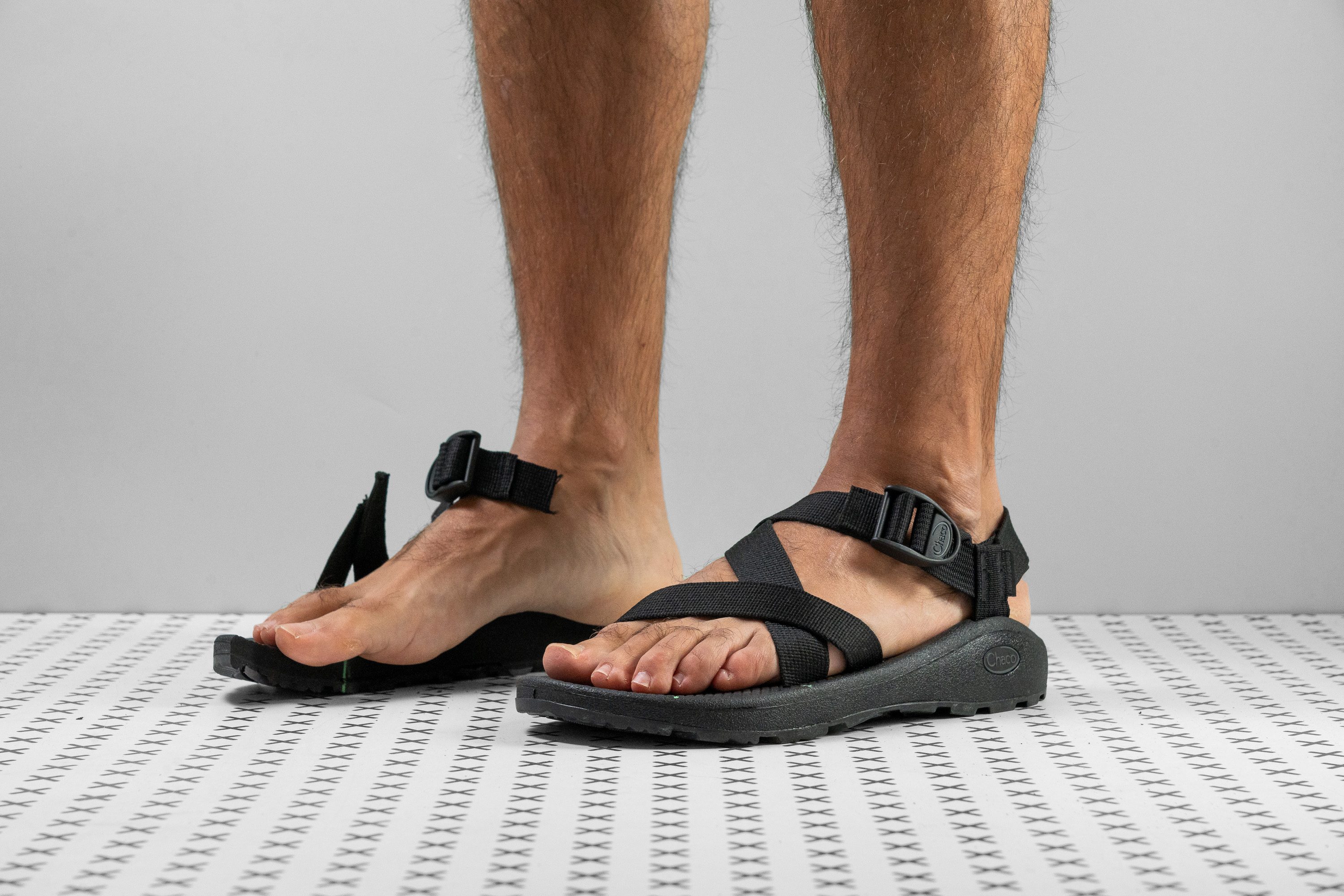





























What makes it the best?
Looking for an all-rounder that delivers top-notch comfort, a love for water, and exceptional grip? Look no further than the Chaco Z/Cloud – it has all this and more, leading us to dub it the most comfortable water hiking sandal.
The instant comfort of the Chaco Z/Cloud took our breath away. The secret to such plush comfort is hidden in the dual-density Luvseat midsole. The molded midsole strikes the balance between support and shock-absorbing cushioning, leaving our feet feeling pampered throughout our day hikes.
The stylish, patterned webbing of the Z/Cloud makes it an adaptable sandal that fits into city life or out on the trails. Made of polyester, it is suited for paddling as it dries out quickly after getting wet during our stream crossings.
The 3 mm lugs provide excellent slip resistance on loose gravel and soft terrain. On our hikes, we felt secure and confident hiking over uneven ground and up steep inclines.
The Chaco Z/Cloud uses just a ladder lock buckle and not a clip. Whilst it still allows for adjustment once the sandal is on, we found the strap was a little too short which makes it difficult to get our feet in and out of the sandal. Hikers looking for a more easily accessible sandal may want to look at other options.
Pros
- Fantastic comfort level
- Very well-cushioned
- Brilliant surface traction
- Super-tough build quality
- Remarkable versatility
- Amazing arch support
- Simple and sleek design
- Keeps stink at bay
Cons
- On the heavy side
- Quite wide
- Dries slowly
If you are like us, then every summer, when the days get longer and the temperatures get warmer, you trade out your cold-weather footwear for sandals. In particular, you may even reach for water hiking sandals because you know a day at the river, watering the lawn, or a trip to the water park is in your near future.
That’s because when it comes to water-related activities, water hiking sandals are the go-to footwear. Their quick-drying breathability and grippy outsoles are hard to beat.
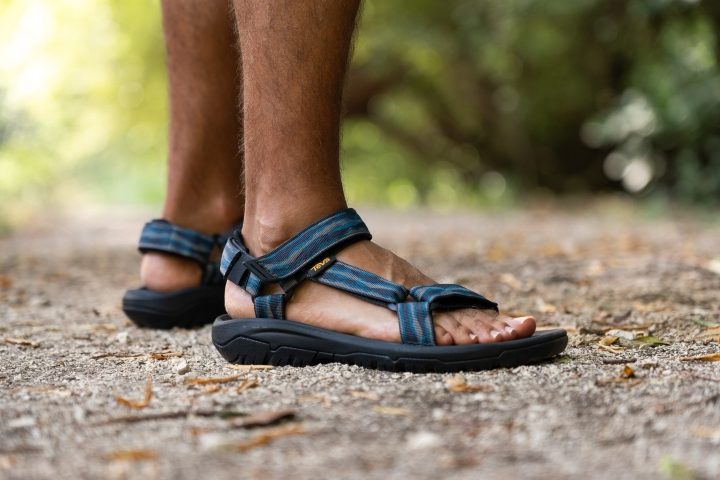
Keep reading if you are expanding your quiver of shoes or sandals to accommodate a new pair perfect for any and all activities where water is involved.
What makes water hiking sandals special?
Water hiking sandals are not just sandals that you are allowed to get wet. They are purpose-built pieces of footwear designed specifically for water-related activities.
In particular, water hiking sandals have four special characteristics that allow them to excel in wet conditions.
- Materials that do not retain too much moisture and dry quickly.
- Outsoles that are specifically designed to provide traction on wet surfaces.
- Simple and easy-to-use closure systems.
- Robust outsoles or toe guards that help protect your feet.
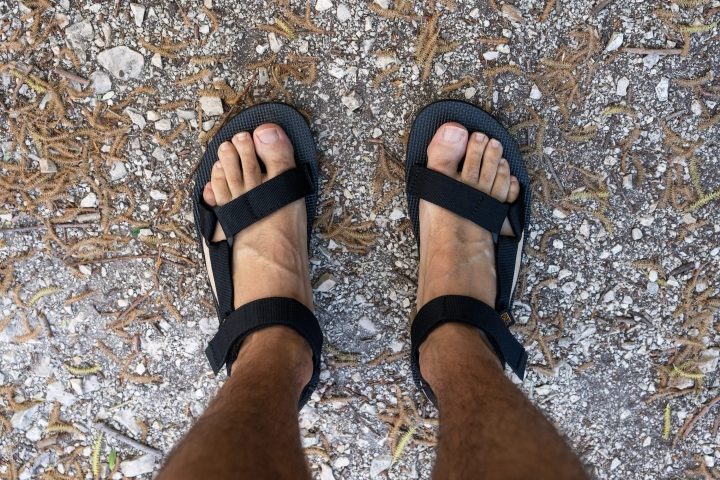
Quick drying breathability
Regarding breathability (ventilation), water hiking sandals stand out from hiking shoes and boots because they have less material. Therefore, your feet can breathe exponentially more in sandals than in shoes.
Proper ventilation doesn’t only help your feet from overheating and becoming hot and sweaty messes. It also allows the sandals to dry out super fast.
To facilitate quick drying, hiking sandals feature materials that don’t retain moisture. That means you can cross a stream without worry of soggy feet at camp. Or wear your sandals all day at the water park and dry out before returning to the car.
Grippy outsoles for wet surfaces
One of the most important features of water hiking sandals is the outsole. The outsole gives you a grip on various surface types, especially wet ones. That’s why sandal manufacturers spend so much time researching and designing rubber compounds and tread patterns.
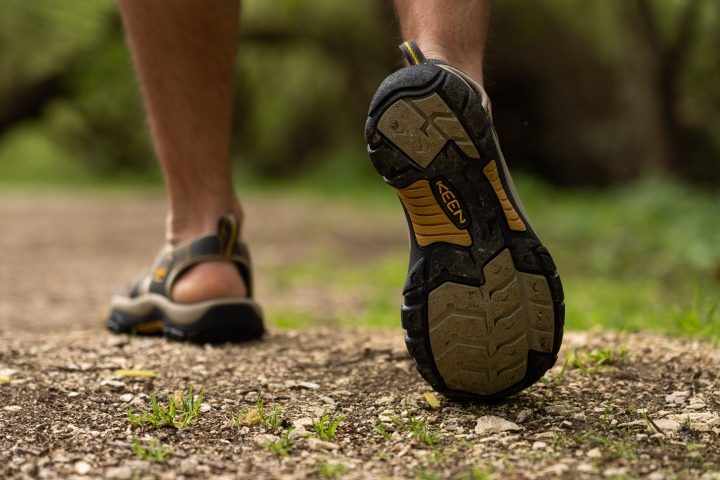
Outsoles on water hiking sandals rely on a siped tread pattern. Siping is cutting slits across a rubber surface to improve traction in wet or icy conditions.
In addition, water hiking sandals feature deep lugs almost equivalent to traditional hiking shoes or boots. Deep lugs help the sandal remain reliable on off-pavement surfaces, like dirty and rocky trails.
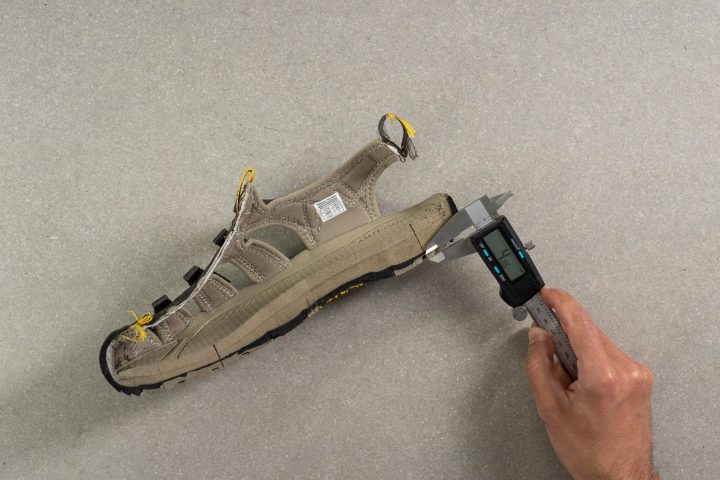
Secure closure system
Your footwear is only helpful if it stays on your feet. That’s why hiking sandal manufacturers spend so much time designing effective and easy-to-use closure systems.
If a pair of hiking sandals fits too loosely or is not properly secured, you risk hot spots and blisters while hiking. Even worse, loose sandals can slip off your feet in powerful currents you might find in the ocean or quick-moving water on the river.
Water hiking sandals use a velcro strap and buckle or a bungee closure system.
The perfect example of a velcro strap closure system is found on the Teva Hurricane XLT 2. The Hurricane uses three straps, two above your foot and one behind your heel, to precisely lock in your feet every time.
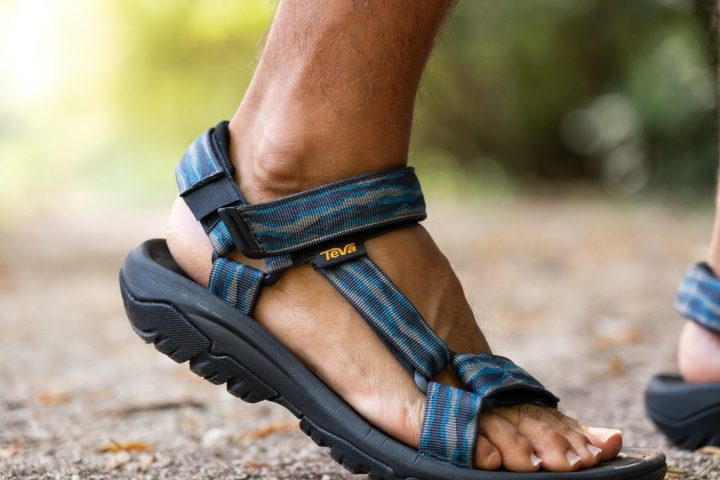
|
Strap Closure System (with buckles or Velcro) |
|
|
Pros |
Cons |
|
|
|
|
|
|
In some cases, hiking sandals rely on a bungee closure system—for example, the Keen Uneek and Keen Newport H2. Bungee closure systems may have a slight advantage because straps and buckles can deteriorate from exposure to the sun and water.
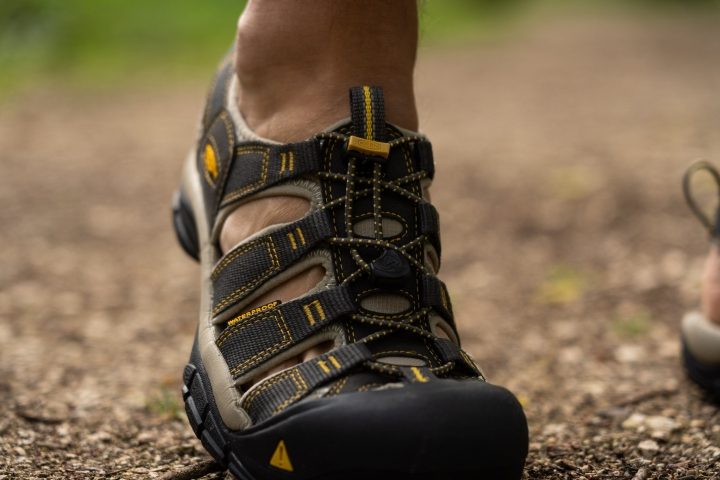
|
Bungee Closure System |
|
|
Pros |
Cons |
|
|
|
|
Features to protect your feet
Like other forms of hiking, water hiking puts your feet at risk of injury. For example, imagine boulder-hopping over tidepools or wading through a flooded slot canyon. If you were barefoot during these moments, your feet would be exposed to sharp sticks, rocks, or other foreign objects.
And in hiking shoes or boots and socks, you’d be a soaked and soggy mess. On the other hand, in hiking sandals, your feet would be protected.
Hiking sandals feature robust outsoles that not only provide traction but also protect your feet from stepping on injurious objects. Even better, some sandals, like the Keen Newport H2, are closed-toed, protecting your feet even more.
Also, pay attention to the sandal's stack height. It can range anywhere from 15 to 30 mm and it's up to you to decide how much underfoot protection you need.
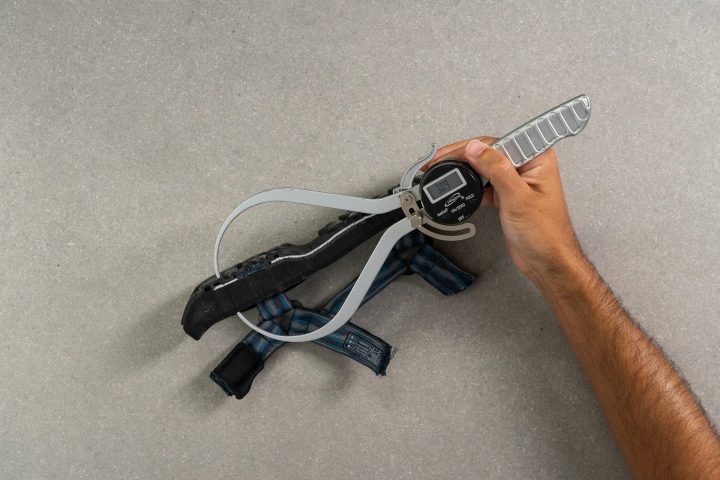
Water hiking sandals need to breathe and dry quickly
Water hiking sandals prioritize drainage, breathability, and quick drying.
When you get a pair of water hiking sandals soaked, water can drain out instead of getting trapped inside (like it would with waterproof shoes).
In addition, sandal manufacturers like Keen and Teva use lightweight synthetic materials that are designed to get soaked yet retain little moisture. Therefore, with sunshine and a light breeze, they can dry quickly.
What is water hiking?
If you’ve made it this far and have learned a lot about sandals but are still wondering what water hiking is, let us explain.
Strictly speaking, water hiking involves hiking through rivers, traveling near waterfalls, crossing streams, wading slot canyons, and exploring tidepools. Essentially, any water-related walking, hiking, or exploring where getting wet is part of the experience.
But you don’t only have to utilize water hiking sandals in the strict sense of the definition. More generally, water hiking sandals are the ideal footwear for any warm weather and water-related activity.
For example, water hiking sandals are ideal for
- Canoeing and kayaking
- Water parks and public pools
- Stand-up paddle boarding
- Trips to the beach
- Fishing trips
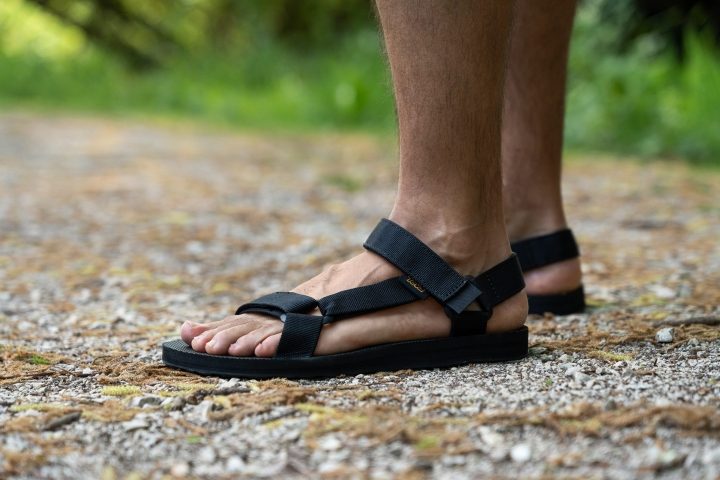
Wearing socks with sandals
It probably goes without saying that you don’t want to wear socks with sandals if you are planning to get wet. Nothing feels worse than being stuck wearing soaked and soggy socks.
However, for other scenarios where you might wear your sandals, wearing socks is a perfectly acceptable fashion choice.
Socks and sandals are particularly nice on days or nights when it's chilly, but you still want the comfort of wearing sandals. For example, hiking sandals make great footwear for around the campground. Add a pair of socks, and you’ll be super cozy.
If you do intend to wear socks with sandals periodically, make sure you select a size that can accommodate your feet with socks.
